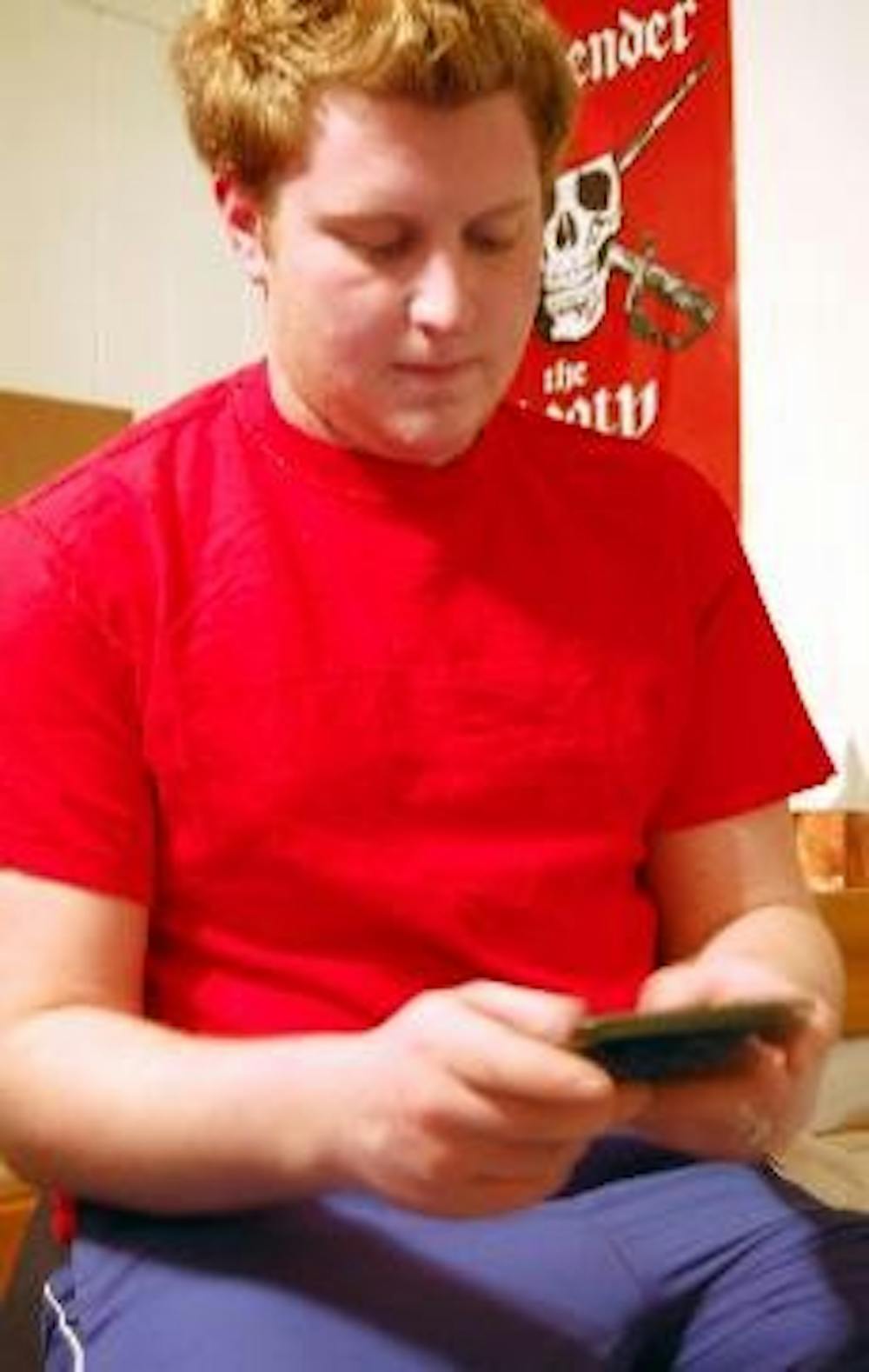
Sophomore BJ Jacobs checks for text messages in his residence hall. The emergency text messaging system, set to be tested Jan. 23, will be followed by a user survey.
Miami University is scheduling its first test to be held Jan. 23 for the Oxford campus portion of the emergency text messaging system, set up by e2Campus.
Other universities have had problems testing their systems, but according to Claire Wagner, assistant director of university communications, Miami is hoping for a smooth test-but still does not know if problems will occur.
The system will be tested at 11:50 a.m. Jan. 23. An alert will be sent by both text message and e-mail.
In addition, according to Wagner, about 600 people who did not complete their text alert or e-mail alert registrations on e2Campus will receive an e-mail advising them to complete their registrations.
"We sent notices to people who had not fully registered but may have thought they did," Wagner said. "So we know not to count those people whose accounts were not full signed up for if they do not complete the registration by the time of the test."
Wagner explained that the text message or e-mail sent would have a subject reading: "Test." Users will then be instructed via e-mail to take a six-question survey regarding, in particular, the time the message was received or read.
If there is a real emergency Jan. 23, the test will be moved to 11:50 a.m. Jan. 30.
Wagner said since the shootings at Virginia Polytechnic Institute in April 2007, universities all around the country have been rethinking their methods of contacting students in case of an emergency.
Provost Jeffery Herbst said Miami realized the need for increased communication during emergencies.
"In the wake of the Virginia Tech tragedy, I think that all colleges and universities were sensitized to the need to develop as many ways as possible to communicate during emergencies," Herbst said.
Enjoy what you're reading?
Signup for our newsletter
Miami; through the help of e2Campus, a company designed to aid colleges with emergency alerts; established an emergency text message system.
"We have a variety of means of communicating emergencies, in particular, crime alerts, info bulletins, and even weather radios in all the buildings to announce tornado warnings," Wagner said. "But we realized how important it was to come up with a system to alert students in case of an emergency."
Four thousand six hundred fifty-two students, faculty and staff have signed up for the emergency text messaging system.
"I would have hoped for more ... my personal hope would be that 10,000 people register ... a third of the school seemed like a good number," Wagner said.
John McCandless, chief of police for Miami, agrees that more students should sign up for the text messaging service.
"I'm hoping that we can get more students to sign up and that the test will spur more people to sign up," McCandless said.
To register for the emergency text messaging system, go to www.muohio.edu/police. A link is available in the right hand margin. According to Wagner, users can sign up for Oxford campus, Middletown campus, Hamilton campus or all campus alerts. Some students have already received weather alerts via text messaging because they signed up for all of the campuses' alerts.




